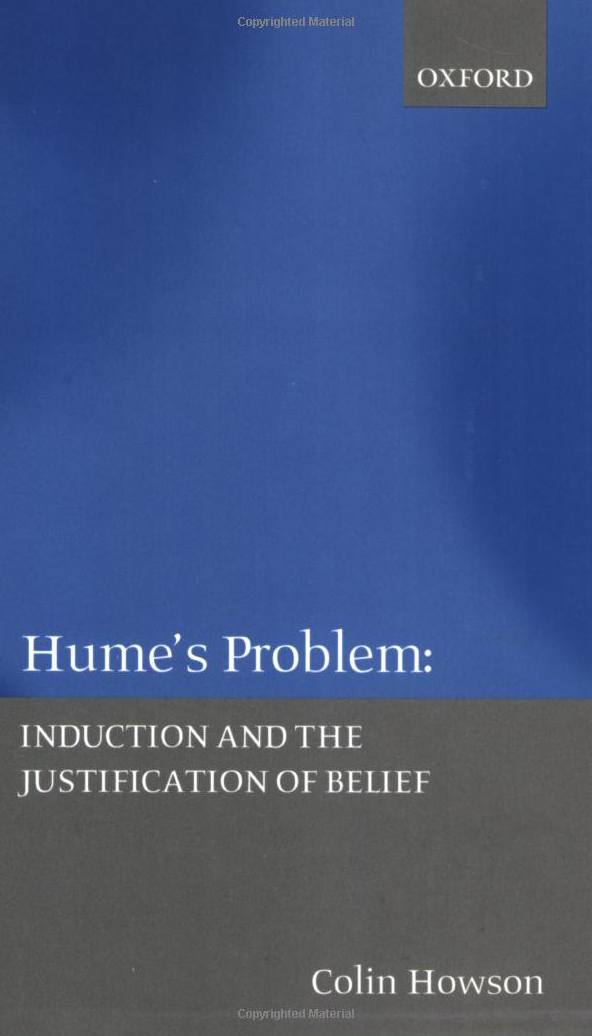Matt and I have had conversations lately where Hume has made an appearance and as such, it prompted me to read a more modern (published in 2000) attempt to deal with the devastation Hume dealt to the justification of the inductive process.
Howson is a philosophy professor at the University of Toronto. He is an atheist who has written a critique of theistic teleological and cosmological arguments. His academic interests have been the philosophy of logic and probability philosophy. The former is of particular interest for me, but Howson has no published work on the subject (though he used to be a professor of logic at the London School of Economics).
Here are some interesting quotes from this book:
“Kant saw the necessity imposed as a condition of thinking and of perception. Kant proposed in the Critique of Pure Reason that a so- called transcendental argument can be used to establish that what seem to be very general factual principles, like that which says that every event has a cause, and even more specific ones like the Newtonian laws of mechanics and gravitation, are necessary because they are preconditions of knowledge, the inbuilt framework within which we structure experience.
Answer. The problem with Kant’s theory is the undeniable fact that we can sensibly and consistently conceive alternatives to the principles Kant held to be ‘necessary’ conditions of cognizing—the ‘law’ of cause and effect, Newtonian gravitational theory, and Euclidean geometry as the only possible geometry for space—all of which, moreover, are now deemed false! In other words, the Kantian ‘transcendental deduction’ is unsound. Furthermore, even if there were ever a sound deduction, it would have to employ some non- tautological premisses, and we should then need to enquire how they were established (at this point Hume enters again). Either that or there is an infinite regress of justification, and nothing is achieved.”
I agree with Howson’s critique of Kant’s transcendental reasoning (ie, for the preconditions of human intelligibility). The Kantian TA is unsound, but that doesn’t entail that TAs themselves, as a method to ground beliefs, are unsound.
Further, Howson states they would need to employ some non-tautological premises (ie, non-circular), but doesn’t substantiate why that must be the case (he simply appeals to Hume’s devastation of induction). TAs are not the same as a traditional, linear deductive argument. If they were, then they would in fact result in the problem of infinite regress.
He seems to recognize the soundness of ‘rule-based circularity’ (an appeal to the work of the later reliabilists) when he says:
“Hence there are inductive arguments which, though rule-circular, are not viciously circular: they can give you a justified belief in their conclusions without requiring justified belief in their own soundness.”
Since circularity is an inevitable consequence of any form of reasoning, it’s a helpful admission that Howson presents at the beginning of the book.

